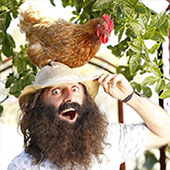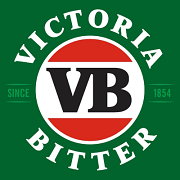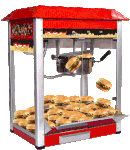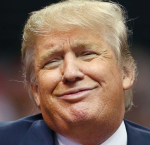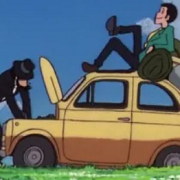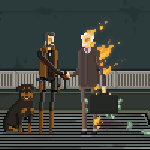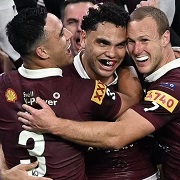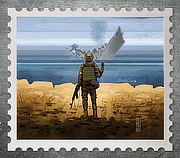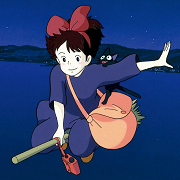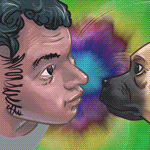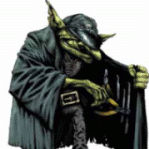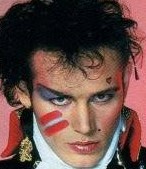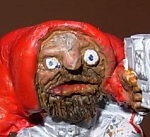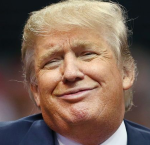|
Past her sell by date? http://www.abc.net.au/news/2017-02-17/pauline-hanson-and-steve-dickson-asked-to-leave-shopping-centre/8280988 quote:One Nation: Pauline Hanson and Steve Dickson asked to leave Sunshine Coast shopping centre Updated yesterday at 7:19pm Meanwhile back in NSW another human sacrifice https://www.coffscoastadvocate.com.au/news/critical-investigation-launched-after-fatal-police/3141845/ quote:MACKSVILLE: There's now a lane in both directions to pass a truck & car crash on the Pacific Hwy. Expect some delays and exercise caution. The kid in the tray top ute was 15. His crime? Doing donuts. Doing donuts now carries the death penalty for minors in NSW. I knew this kid. Not well but well enough. 15 year old boys do dumb stuff but apparently so do entire squads of armed police. There were kilometres of double lane dual carriage way between where police instituted this chase and where the fatality occurred. The kid was driving a loving tray top ute. I'll let you consider the level of incompetence in the police that allowed this pursuit to continue as it did. And what for? This could have easily been avoided by just letting the kid get away with it. Every single one of the police cars involved was a deadly weapon being wielded without due regard for public safety. We have seen the consequences of this to the public all too often. I will be following the coronial inquest closely. When do these ridiculous police adrenaline fuelled rampages get stopped?
|
|
|
|

|
| # ? May 15, 2024 18:49 |
|
Pretty ironic seeing as the NSW police were all  about their portrayal in GTA V. Guess it must've hit pretty close to the mark? about their portrayal in GTA V. Guess it must've hit pretty close to the mark?
|
|
|
|
quote:Well done to the police, and thanks for trying to keep us safe. This is the desired result for all concerned. I hope the truck driver is ok.
|
|
|
|
quote:Well the police were trying to stop a dangerous driver--who could have easily killed you or your family. Fortunately for us ,he only killed himself. I AM THE LAW
|
|
|
|
His crime was driving dangerously, the sentence is death. What are you waiting for, rookie?
|
|
|
ewe2 posted:Dear god did queensland relocate to Scotland when I wasn't looking?! loving steady on mate
|
|
|
|
|
Recoome posted:His crime was driving dangerously, the sentence is death. What are you waiting for, rookie? Every criminal Dredd kills is another cycle of violence ended. 
|
|
|
|
Recoome posted:Pretty ironic seeing as the NSW police were all It is a GTA IV mod. So they are just giving publicity to something no one gave a poo poo about. I last time I tried to play the game I couldn't even get it to run on Windows 10 (or maybe it was 8).
|
|
|
|
I'm talking to friends who are working their first white collar jobs. They are mostly doing overtime unasked to impress there bosses / get good references for their next job. Will doing overtime at your low level white collar jobs actually make you more money, career wise, or is it just a massive waste of time?
|
|
|
|
Rob Filter posted:I'm talking to friends who are working their first white collar jobs. They are mostly doing overtime unasked to impress there bosses / get good references for their next job. I'm not sure if there are actual stats on this but some workplaces have a culture problem when unpaid overtime is expected and you won't progress without it
|
|
|
|
Some companies actually set unpaid overtime as a KPI.... Also it's really poo poo that the "reasonable overtime" clause exists in the legislation, makes the 38h full time hours law a bit of a joke.
|
|
|
|
A section of our contract explains that overtime is necessary in this industry and that any work that must be done outside of hours to meet project deadlines has already been "factored in" to remuneration. This same clause exists for admin workers that have to enter data to meet deadlines, sales people who have to talk to clients at all hours, project staff actually producing the things we sell, and the techs that support parts of the business in six different and varied timezones. While all above minimum award none of these salaries are outside of what you'd consider "market rates" for these professions. I just assume most other corporates have similar understandings, codified or not.
|
|
|
|
sounds like y'all need to get yourselves to the public sector
|
|
|
|
Reachtel has the WA election 50/50 on 2PP Apparently that's not reflected in either the Liberals or Labor's internal polling do I'm holding onto that...
|
|
|
|
The Greens are dripping with cowardice by Chris Kenny posted:
|
|
|
|
I think the problem in Mr. Kenny's eyes is that they were shouting at the moon instead of howling.
|
|
|
|
Chris "Carnal Canine Cahoots" Kenny is disappointed that the Greens were not dripping with dog semen, it seems.
|
|
|
|
Rob Filter posted:I'm talking to friends who are working their first white collar jobs. They are mostly doing overtime unasked to impress there bosses / get good references for their next job. I had this one 8-hours-a-day white collar job for a while. It was pretty good for a year or so, then I got an extra thing to do and did 6 months of 2-4 hours extra work 3-4 days per week to get the thing finished on time. Then I got a $500 "thanks for getting the thing finished on time" bonus. Then I was So for me, at least, it was a complete waste of time and effort and I'm not intending to do it ever again.
|
|
|
|
Okay, I've been distracted by Trump, what's this about Libs preferencing One Nation WA? I'm in (very?) Liberal Swan and wasn't going to vote for them anyway, but what else can I do besides give money to the Greens? Where do I find out who to call and yell at?
crepeface fucked around with this message at 04:44 on Feb 18, 2017 |
|
|
|
Since there are quite loose "core hours" any overtime I work to get some deadline met beyond the amount they "require" simply gets taken back by sleeping in or leaving early. I also refuse actual overtime unless I get something decent. Last time I said yes to overtime it was saturdays for double time with catered lunch. Then again that was a T&M gig so double time was also doubling our margin - got a bonus for that one on top
|
|
|
|
rapeface posted:Okay, I've been distracted by Trump, what's this about Libs preferencing One Nation WA? I'm in (very?) Liberal Swan and wasn't going to vote for them anyway, but what else can I do besides give money to the Greens? Where do I find out who to call and yell at? It's only in rural (read: national party) seats, because the Libs burnt the Nats hard they are betting ONP are a more friendly looking crossbench. Also they are getting metro preferences in return.
|
|
|
|
norp posted:Since there are quite loose "core hours" any overtime I work to get some deadline met beyond the amount they "require" simply gets taken back by sleeping in or leaving early. My last job had a similar informal arrangement of "time in lieu for overtime" that we could take when things "got a bit quieter", since we regularly pulled several 100+ hour weeks in a row ensure commissioning deadlines were met. The problem was that management was so poorly organised that jobs overran all the time and things never got quieter because we had to jump right in to development on the next project because we were already weeks behind. Needless to say the employee turnover rate at that place was ridiculous.
|
|
|
|
For anyone who didn't google lasagne toppers, here's a quick look at the greatest food in the world   
|
|
|
|
A baby ate my dingo posted:Needless to say the employee turnover rate at that place was ridiculous. I've never put in more than a 43hr week with informal time in lieu because it's too hard to claw back doing 2hrs less a week. Longer than that and I'm asking for another, resource or more money. I'm never afraid of telling people their estimates are bullshit and they won't hit their deadlines. The trick is to do it early and not a week out from release.
|
|
|
|
Cirofren posted:A section of our contract explains that overtime is necessary in this industry and that any work that must be done outside of hours to meet project deadlines has already been "factored in" to remuneration. I literally had a contract that stated that reasonable overtime was at least 2 hours overtime per week, so they could set 40 as the minimum.
|
|
|
|
My old boss expected up to 2 hours a day. Hah!
|
|
|
|
iajanus posted:For anyone who didn't google lasagne toppers, here's a quick look at the greatest food in the world That doesn't look like a parma 
|
|
|
|
So it's..a lasagne croquette?
|
|
|
|
They're meat sauce, with a layer of pasta and cheese on top, breaded and deep fried 
|
|
|
|
It's savoury mince with cheese on top, crumbed and deep fried. I never understood why it's called lasagna other than its roughly served in the same shape E. Wait there are ones with pasta?
|
|
|
|
Yeah, some have a layer of pasta between the cheese and meat Either way they are delicious E: http://www.tophat.com.au/Products/Toppers/Lasagne_Topper.html for example
|
|
|
|
It's not just a Queensland thing, they're found down here in Hobart, and they even have béchamel for added authenticity.
|
|
|
|
I feel like I've just read george christensen's origin story
|
|
|
|
Lasagne topper, it's the topper the lasagna. Pasta is the Greek version. http://www.recipegirl.com/2016/03/18/pastitsio-greek-lasagna/
|
|
|
ZombyDog posted:It's not just a Queensland thing, they're found down here in Hobart, and they even have béchamel for added authenticity. Wait... where exactly?
|
|
|
|
|
TheMightyHandful posted:Wait... where exactly?
|
|
|
|
Rob Filter posted:Will doing overtime at your low level white collar jobs actually make you more money, career wise, or is it just a massive waste of time? Do what you do well in the hours you're paid. Get a good network going that doesn't only involve you and people who drink piss at the pub every Friday. Having people that will offer you guidance (and maybe air cover if you gently caress up) is very handy. When people start coming to you for advice you're doing it right. Of course you will have to do overtime sometimes. That's life. If its not recognized get on LinkedIn and work on Plan B. I will work jobs with crazy stupid hours sometimes if it's worth it. Some projects or jobs are too rare and/or lucrative to pass up. Knowing when it's worth it is just experience.
|
|
|
|
A group of Young Liberals are touring Hobart’s Cadbury chocolate factory. They are warned – along with the other guests – not to take photographs or use recording equipment. They must not put their fingers in the giant vats of cocoa, touch any confectionary as it passes along the network of conveyor belts, or pick up any pulpy clumps from off the floor. Instead, seemingly at every turn, the tour guide offers approved chocolate assortments and most people fill their pockets with an excitement beyond control. James Stevens, however, stands back, hands on hips. He is the 21-year-old president of the South Australian Young Liberals, a tanned, handsome man, and he wears Cadbury’s regulation hair-cover and a serious expression. In his shiny black business shoes and rolled shirtsleeves he looks to be here on official business – and in a way he is. It is a Friday in late January and the Young Liberals are visiting Hobart for their annual federal convention, held this year at Wrest Point Casino. The chocolate factory tour is an informal activity in a full weekend, culminating in the highly charged election of the federal Young Liberal president. James is a candidate. As he walks through the vast complex of churning, whirring machinery, he is escorted by his friend and confidante Gareth Ward, 23, a tall albino councillor from Shoalhaven, New South Wales, with a quick wit and a penchant for Turkish Delight. These two men represent the moderate faction within the Young Liberals. They are pro-republic, concerned about the environment, believe in a woman’s right to choose and in “practical” reconciliation. James tells me his political hero is JFK: “Jack was prepared to stand up and fight for changes even though it was a more difficult path.” James joined the Liberal Party at 16 while attending Adelaide’s elite St Peter’s College, where “to be honest with you I was probably a stereotypical private school boy”. His parents were Young Liberals and have “quite a few friends who went places in the party”. His father has worked as a government lobbyist and adviser. Central to James’s vision is strong economic management; he has just finished a commerce degree at Adelaide University and is looking for a job in finance. He is also involved with various South Australian charities, including the RSPCA. I would not have picked James as a member of the Gilbert and Sullivan Association, but he enjoys performing in musicals and he produces carols concerts to raise money for spastic centres and the Cancer Council. Throughout the weekend I imagine I notice him to have a lightness on his feet, a sort of springy walk, as if he might suddenly burst into song. The song, however, might not be particularly upbeat. As one moderate puts it: “It’s hard these days to be a liberal in the Liberal Party.” It’s not much easier in the Young Liberals. The federal party’s current ideological battle between moderates and moral conservatives is distilled and very evident in its youth wing. This election is a case in point. Campaigning between the presidential candidates is fierce and has been going on for months. When I ask a senior Liberal Party figure why the position is considered so vital, he tells me “it’s just a prize”, which is only half true. It is a prize offering kudos and fabulous networking opportunities to the winner: the Young Liberal president and vice-president each get a seat on the party’s federal executive. Five or six times a year they get to meet in various forums with the prime minister, treasurer and the rest of the executive. They get to raise with John Howard and Peter Costello their concerns about issues facing young people. And they are also each entitled to a vote, which means these candidates are of great interest to factional warriors at the highest levels. What might James Stevens, given the chance, tell John Howard? Whatever his opinion, it would be couched in the most diplomatic terms. James is incredibly polished and has an impressive grasp of various issues, although at 21 he will sometimes slip and, for instance, use the odd unfortunate metaphor. Speaking of the Howard government’s tsunami relief effort, he tells me: “If anyone thinks we’re not generous, this blows that out of the water.” He is also ferociously loyal to the party. On the war in Iraq, he tells me: “If I was the president of the United States, and I had an armed force at my disposal, and I saw people being killed by the millions, as a human being and a person of compassion I couldn’t not do anything about it.” On Aboriginal reconciliation, he says people get too caught up in symbolic gestures. What real good does saying sorry or walking over a bridge do? “We have to acknowledge there are problems in Aboriginal communities and we have a responsibility as a nation and as a government to deal with those problems. Everyone should be able to read and write. Everyone should have access to proper education. Everyone should have access to proper healthcare.” Of course, the purpose of this weekend is partly to rehearse how best to express one’s message, and at moments a tiny degree of theatricality charges his responses. Talking about abortion, James lowers his head and fixes me with a close gaze. “As a man, I could not possibly understand the emotional decision involved in having an abortion. I could never understand that. It would be wrong for me to stand up and say that I think abortion should be illegal, because I couldn’t understand the pain and agony,” he stresses, “that a woman goes through when she decides to have an abortion.” He says one issue is being lost in this debate: the difficulty of raising children. He thinks Australia should look at paid maternity leave, at how to make childcare more affordable and workplaces more family-friendly, and to perhaps acknowledge that family structures are changing. In his 1994 opus Menzies’ Child, Gerard Henderson suggested that the Liberal Party, led at the time by Alexander Downer and a host of senior ministers educated at private schools, ran the risk of seeming dated and narrow. James notes that John Howard’s success comes from reaching out to aspirational voters in outer suburban areas, and says these voters – or at least their children – are now signing up with the Young Liberals. This is “good for the diversity of the party”. In my conversations with Young Liberals, James was by no means the norm. Most people, on either side of the conservative spectrum, claimed their backgrounds were middle or lower-middle class. A large number were first-generation Australians. Often they had Labor-voting parents and had attended a state school. Being “born of the party” could almost be a disadvantage. Back in the Cadbury factory, hundreds of workers in white shirts and surgical caps are moving swiftly, boxing chocolate and then carting around the boxes. The last stage of chocolate-making is the tempering, a complicated process of heating and cooling – not unlike a political apprenticeship. The Young Liberals stroll into a room permanently heated to 30 degrees, with a cocoa-scented breeze. Here a huge machine labelled DREAM leaks a sickly yellow fluid into a small bucket. And I notice James seems to have a slightly anxious or impatient air. At the end of the tour, in the gift shop, he is already on his mobile phone. This is going to be a close race, and there’s a sense that there is no time to lose. If I were James Stevens I would be nervous too. Earlier that morning I met his rival, Alex Hawke, the Young Liberal president of New South Wales. “It’s a bit RSL,” says Alex, walking into the casino’s coffee shop. The decor, which includes an electronic billboard broadcasting Tattslotto results, is slightly garish and Alex, a short 26-year-old with a muscular build, is feeling off-colour. He had a late night, throughout which – as a candidate – drinks were on him, and he has been jogging in an attempt to recover. Still, if he hadn’t said anything you wouldn’t notice. What is most striking about Alex is his intensity and self-assurance. It’s hard to imagine even a hangover getting the better of him. On many levels he is the antithesis of James Stevens. The “Daddy bought me a car” aspect to the Young Liberals is something he’s keen to stamp out. He describes his own background as lower middle-class and conservative. A good student at Cumberland High, in western Sydney, he was once thrown out of class for telling a teacher there was more to economics than Keynes. In retrospect, he admits, it was lonely being the only kid in his grade who was very right-wing, and he regrets not accepting other views more easily. “If I had, I probably could have got them to sign up.” Alex’s political education started early. He remembers having to stage a class election in grade six. The teacher, apparently, highly commended his poster and slogan. “She basically said: ‘All this other stuff’s crap, this is the guy you need to be looking at.’” He did not win, though. “The voters were wrong,” he says facetiously. By year 12 it was time to run again. “I’d figured there were more people not in the in-group than were in the in-group,” he explains. So, with an uncanny understanding of wedge politics, he visited every single person “downtrodden of in-groups” and told them: “Look, these guys get everything. This is our chance to stick it to them, and I’m going to be your candidate.” He was elected in a landslide. “We rigged the ballot,” he admits now with remarkable candour, “but that’s a different story.” Out of high school, Alex began an arts degree at Sydney University, joining the Liberal Party and the Army Reserve. “The army was great, I would have gone mad without that,” he says. “You can see why uni people go and do a lot of drinking and probably drugs – because there’s not enough to do.” Arts students on Austudy or Abstudy, he tells me, are “blatant frauds because they could go get jobs and complete their studies. They’re just coasting off taxpayers’ funds, rubbing people’s faces in it.” Alex often skipped lectures because he was on active duty, but out of a Reserve class of 120 he was one of 20 who graduated. “The training is very tough, very very tough.” Alex is currently an assistant to the ultra-conservative state MP David Clarke, who can perhaps claim some of the credit for his protege’s rise to the NSW Young Liberal presidency. In his maiden speech in 2003, Clarke promised to “uphold and advocate the conservative, mainstream and Christian-based truths and values that I believe our nation is based upon … with missionary zeal”. This has included hot-housing young religious conservatives. The NSW Young Liberals were long considered the jewel in the moderate Liberal crown but, as one young New South Welshman tells me, Clarke “kind of got people together to take over”. With Clarke’s support, recruiting from organisations such as the secretive catholic Opus Dei movement, the NSW Young Liberals now have the largest membership base of all the states. When I ask Alex about his own political heroes, he replies: “I’m not going to say Che Guevara or anything!” His vision for Australia, influenced by his admiration for Reagan, Thatcher and Howard, involves lowering taxes and winding back the welfare state. But, as he acknowledges, the battle over economic rationalism has been all but won; his right-wing moral agenda is the harder sell. Alex has championed raising the age of consent, which he considers a child protection issue to stop gay men preying on the young. He also warns me that “abortion is not going to be off the agenda”, then adds, with a smile: “It’s going to be back, probably bigger and better.” We talk about a range of issues. On the stolen generation, he tells me: “There is no generation. I think Keith Windschuttle has got it exactly right.” Alex is sitting with his back to the casino’s windows, and it is strange to look out at Hobart’s harbour and mountains while hearing him profess agreement with the thesis that Tasmanian Aborigines have only themselves to blame for their annihilation. “There has been this deliberate attempt to rewrite history. To say we came here and raped and pillaged and murdered – and they do, they carry on awfully about it – is quite appalling.” I wonder whether Alex’s absolute self-assurance is due to his religious convictions. In some, faith can work to remove doubt. The only time he is lost for words is when I ask if he was in favour of war in Iraq – and that’s because we’re both laughing since it is obviously such a stupid question. “Do I inject my religion into my politics?” he says. “No, but my religion guides the values and the ethics of the things I do.” When I ask how he’s dealt with factional divisions, he says his “main agenda” has been “removing that strain and putting in place young conservatives … so that we keep the party on an even keel”. Alex feels left-leaning Young Liberals may as well join Labor or the Greens. “It’s very addictive, politics,” he continues, “it is like a habit.” He believes that for some the obsession is healthy; others, like bad drinkers, take it too far. To balance his own obsession he has his faith, his friends and the army. He believes Australia will move increasingly towards an American model of conservatism. “The two greatest forces for good in human history are capitalism and Christianity, and when they’re blended it’s a very powerful duo.” In the evening the Young Liberals, along with various state and federal ministers, board a vintage ferry for a dinner cruise down the Derwent River. Sitting at tables with white linen cloths and candles, they sail past Government House, sparking cracks about the recently departed governor Richard Butler. They pass a shipworks with a US navy catamaran moored outside. They pass the zinc works, all lit up, and as it blasts some or other emission into the air it looks strangely beautiful. If Robert Menzies were staring down at the ferry, what would he be thinking? On December 12, 1945, Menzies convened a meeting at the Melbourne Town Hall attended by more than 750 people. “I regard it as the supreme privilege I have had … to be able to stand before this excellent audience,” he told the fledgling Young Liberal movement, “to ask you to come to the battle with us, because with your aid, we shall win.” In the past 60 years a significant proportion of Liberal high-flyers have heard this clarion call: John Howard (NSW president 1962–64), Andrew Peacock (Victorian president 1962–63), Philip Ruddock (federal president 1973–74), Lynton Crosby (South Australian president 1979–80), Peter Reith and Robert Hill, to name only a few. Today the Young Liberal movement has more than 5,000 members. Throughout the weekend, MPs and senators are continually advising them to reach out to as many people as possible – to reach out and grab, as Senator Ian Macdonald puts it, the “Kath and Kim” vote. But appealing to the broader community is not the average Young Liberal’s immediate problem. Their biggest issue seems to be getting along with each other. As the ferry sails further down the river, supporters of Alex Hawke and James Stevens sit on opposite sides of the cabin. One gets the feeling that if someone from, say, the Left were to fall off the boat, nobody from the Right would rush to sound the alarm. When the moderates are asked how they feel about the moral conservatives, they tend to quote – with a degree of self-consolation – John Howard’s line about the Liberal Party being a broad church. This metaphor does not entirely work for Alex. “People say it’s a broad church. My response to that is you’ve got to agree it’s a church. It’s not a brothel, for instance. If people want to legalise drug-injecting rooms, lower the age of consent, go with all these trendy things, this is not the party that believes in those things. We’re not that broad.” As the election draws nearer, tension is in the air. Over the past few months candidates have been on the phone daily to delegates. Now conversations are taking place along the lines of: “What will I do for you?” “What will you do for me?” A candidate might, for instance, offer a supporter a place on the Young Liberal executive. Or they might make an arrangement such as: “If you vote for me this year, I’ll vote for you next year.” Or they might give the very fortunate – or very hard to sway – a coveted parliamentary staff position, “donated” by a sympathetic cabinet minister. Each state has six delegates at the convention, all of whom get a vote in the election. States tend to vote in blocs because the delegates are appointed by each state president and are usually his friends and allies. New South Wales, Queensland and Western Australia are expected to vote for Alex. South Australia will be supporting James, as will Victoria and, the moderates hope, Tasmania. The anomaly here is that all states get six votes, even though NSW claims to have about 2,500 members and Tasmania around 50. All year, the Tasmanians tell me, heavyweights have been flying down to befriend the delegates. “It’s six easy votes for them.” For either candidate to win, they need the Tasmanians on side, and one Tasmanian delegate is being wooed particularly closely. Rachel Fry, a striking brunette and the daughter of former state MP David Fry – who headed the anti-gay lobby group “For A Caring Tasmania” – is by Alex’s side, and the two seem to be getting along extremely well. The difficulty in defining anyone as Left or Far-Right is brought home as I meet pro-choice monarchists and pro-life republicans. Someone considered Left takes issue with the term: “You don’t join a right-wing party to be on the Left,” he tells me. “It’s just a way for the Far-Right to marginalise us.” When I speak to someone from the Far-Right, he claims that term discredits his faction. The old tags of “wets” for moderates, “dries” for economic rationalists and “uglies” for moral conservatives start to make better sense. One young woman admits she likes Tony Abbott, the health minister, but disagrees with him on abortion and the republic. “What kind of a Liberal are you?” asks a wet. “What kind of a Liberal are you,” she retorts, “to question what kind of Liberal I am?” I meet all kinds of Liberals. On one side of the ferry, among the South Australians, are two young men in different choral groups. Then there are the charming Westernberg brothers, the eldest three of seven boys who have all been home-schooled and have chosen to do university by correspondence. Staunch monarchists, but small-l liberals in most other senses, the Westernbergs joined the Liberal Party because they like the ethos of individualism. Nick is reading Samuel Johnson; Greg is reading James George Frazer’s The Golden Bough. Eldest brother Luke, a field officer specialising in Aboriginal language maintenance and revival, speaks of an Arrernte word that means “the way the air feels just before it rains”. He believes indigenous languages express knowledge about a country that you cannot possibly possess if you have lived in it only 200 years. On the other side of the ferry sit Alex’s supporters, including burly Mark Powell, Queensland’s Young Liberal president and the Right faction’s candidate for federal vice-president – another aggressively contested position. When invited by a senior party figure during last year’s federal election to brainstorm issues important to young people, Mark allegedly responded that all the forests could be bulldozed and replaced with concrete, for all he cared. Reading through the Queensland and NSW Young Liberal policy motions, one feels transported from the vintage ferry to the yawl Nellie in Heart of Darkness, heading down the Congo. These motions include the condemnation of euthanasia supporters “for their manipulation of terminally ill people”; of persecuted homosexuals for being afforded refugee status; of proposals allowing homosexual couples to adopt. There are calls for new education programs in schools, as detailed by Australians For a Constitutional Monarchy, and for the abolition of cross-media ownership restrictions. The only motion relating to land or water management involves Young Liberal support for the timber industry. Later, while having a drink with Kyle, 24, a pleasant law student who leans towards the moral conservative side, I say: “You joined the Young Liberals at 18, it’s been six years, have your opinions changed?” After a while he answers. “No.” A lot of people aren’t sure where they stand politically at 18, but Kyle tells me: “I’ve known since I was four.” We’re standing at the casino’s sports bar with another man, who is growing pensive. He’s scared, he suddenly announces, that his sister is going to be brainwashed by Greens supporters and that they will teach her to be compassionate to refugees. “It’s not that we’re not compassionate to refugees,” Kyle says, “it’s just that we believe in strong border protection.” “From people we don’t know,” adds the other man. Turning to me, he smiles knowingly. “Like the Pakis and Afghans.” On Saturday morning the convention begins with a rousing rendition of the national anthem led by Vince Taskunis, an adviser to Senate president Paul Calvert. The conference room, which is reached by walking through the casino’s gaming rooms, has bright turquoise walls and a cardinal-purple ceiling. Maybe 25 people are in attendance. Soon various senators and MPs start addressing the room, which fills slowly. They say how pleased they are to be in Tasmania after the federal election win and thank the Young Liberals – “the brains, foot soldiers and future” of the party – for their role in it. Nick Minchin, federal finance minister, claims to be looking forward to the 2007 election when he hopes to campaign to remove “the blight” of compulsory voting. Minchin talks of non-voters who go to jail after every election because they refuse to pay the fine – and “I admire them for that.” After a number of these pep talks, the Young Liberals move on to policy debate. The first policy motion is a call to end Medicare-funded abortions, which is combined with a call to ban partial birth abortion. Kyle, who is tall, baby-faced and slightly overweight, ambles to the podium. “Sorry, I haven’t got anything prepared on this …” he admits, and starts talking with no great rigour on the subject of partial birth abortion. “It’s a horrific practice … and the government shouldn’t be allowing such a horrible practice to take place. If you haven’t seen the photos go and have a look at them on the website, it’s really nasty stuff.” He pauses, before concluding his remarks. “So, go for it!” People laugh. The next speaker, Mark Powell, does not share Kyle’s affable manner and instead simmers with a general outrage. “Very simply, a lot of people pay tax … that might be unfortunate for all of us, but when you are compulsorily acquiring people’s assets for …” Then he stops, controlling his own disgust. “I find it abhorrent that we are providing for women to have abortions basically without restriction. Basically if you find the right doctor you can get anything done you like … it is just disgusting that we ask the rest of society to face that burden.” Next up is Gareth, James Stevens’s supporter from the chocolate factory, a commanding figure due to his height, pale features and obvious acumen. “My great concern,” he says, “is that the two speakers who have spoken so far have been men.” Sitting behind me are Senator Minchin and his ex-staffer David Miles, a right-leaning Young Liberal who is now manager of government affairs at pharmaceutical giant Pfizer. “What crap!” Minchin whispers. Then, as Gareth continues talking about abortion as a women’s health issue, Minchin asks: “Is he gay?” Natasha MacClaren, a blue-ribbon type who wears diamond earrings and tailored suits, stands – perhaps at Alex’s urging – and describes, with an air of hysteria, and a voice wavering with emotion, the intricacies of partial birth abortion. Seemingly on the verge of tears, she tells us that in America babies are aborted right up to their due date. The vote is carried. Swiftly the next motion is proposed by Matt Eggleston, the West Australian Young Liberal president, calling on Malcolm Fraser to resign his Liberal Party life membership. Eggleston, wearing a suit and tie, his hair carefully brushed back, looks like a figure from the 1930s. He cries out various charges: “He is without doubt one of the worst prime ministers Australia has ever had!”; “He did nothing!”; “I call the Fraser years the lost years!” Bells ring as Eggleston exceeds his time limit. Undeterred, he keeps going, calling for Fraser’s resignation due to his “abominable disloyalty!” Then Alex joins the charge. “Perhaps you can say: well, somebody failed, everybody makes mistakes, he did the wrong thing and he’s a person who has learnt from that, and … he is humbly accepting that his period in government led to the longest Labor government ever! But no! Every day and every election we are subjected to hearing about Malcolm Fraser!” In the middle of Alex’s speech Tony Abbott walks into the room, and it’s as if the temperature suddenly changes. Alex now thumps the podium. “We are still suffering the effects of Malcolm Fraser’s government! We ought not to suffer the effects of him, as a human being, still attacking our party and our ideological beliefs!” He continues, fist pounding, calling for Fraser’s resignation, then shrieks: “Let’s get him into the Greens where he belongs.” There’s something comic about a group of young men demanding that Malcolm Fraser resign from “our party” – though no one seems to see it. Alex sits back down and the fight goes on, but one senses the chief has spoken and the tribe are more or less appeased. Robert Michels, in Political Parties, argues that a leader requires “the force of will which reduces to obedience less powerful wills”. Alex’s followers seem obedient, although they are a fairly motley lot – if not a little thuggish. “They certainly look like thugs,” one Liberal figure admits, referring to their collective bulk. During policy debates, these young men work hard at heckling and intimidating their opponents. One of them even yells wisecracks about Gareth’s white hair. The South Australians, by contrast, with their choral groups and interest in the classics, seem almost foppish or effete, cowed by the show of aggression. And throughout everything, I can’t help seeing James in a series of Gilbert and Sullivan starring roles: as Frederic, the pirate’s apprentice, in Pirates of Penzance; as Nanki-Poo, the disguised emperor’s son, in The Mikado. Later at lunch, while waiting for Abbott’s speech, someone at my table suggests that at least Malcolm Fraser refused to recognise the legitimacy of the Soviet annexation of Eastern Europe. Out of my six table-mates, four are first-generation Australians from Bulgaria, Russia, Poland and Lithuania. But no one concedes it’s a fair point. Tony Abbott has taken time off from his vacation to deliver his luncheon address. “Every year,” he begins affectionately, “you do interrupt my holidays, you buggers!” There is a feeling of great excitement. Abbott has an enormous following within the Young Liberals. The girls do a kind of swooning gesture to show their admiration, while among the boys there are cases of straight hero-worshipping. Shaking his head, as if in astonishment, one young man who has volunteered in Abbott’s office says: “Tony knows where everything is. Every book, every file.” It has been tipped that Abbott will come out strongly against abortion. But unbeknownst to the audience, two days earlier he spoke for the first time with the man briefly believed to be his illegitimate son. Perhaps as a result, he settles on less contentious ground: “Under Howard, Australia has become a somewhat more conservative country.” Conservatism, he declares, is “no longer the political tendency which dare not speak its name”. As Abbott continues, mums and dads with small children can be seen walking along the casino’s boardwalk. There are grey clouds, and it seems about to rain. “A very significant part of the Howard government’s achievement has been to massage away the pessimistic and narrow-minded aspects of Australian conservatism.” Events such as the Olympics and the war on terror, he says, have given us a new-found national confidence that has bred a form of “sophisticated” conservatism. These sophisticates are not always easy to spot within Abbott’s own faction. As the weekend wears on, I watch various Young Liberals describe euthanasia as “a licence to kill”. They call for the government to withdraw its ratification of the Rome Statute of the International Criminal Court, labelling it “sinister” and “nothing but a mechanism for special left-wing interest groups within the UN to override our own sovereignty and national interest”. Mark Powell, a lawyer and advocate of mandatory sentencing, suggests third-time offenders should be given life imprisonment. Alex tells me: “Welfare, land rights, all that stuff, I think the only way to treat people in a society is as equals.” Except, James points out, if they happen to be gay and want to get married. Not even the obese are free from the Right’s ridicule. A tax concession for gym membership is debated, with Tony Tasconi from Western Australia claiming: “This is a big fat waste of money! I’ve seen obese people turn up and do their five minutes, then I don’t see them for a few years!” He suggests sarcastically that the chronically overweight be given a tax rebate to Jenny Craig, and receives loud applause. More than one Young Liberal notes it is almost as if their more conservative peers are competing to see how right-wing they can be. And in a sense they are. They are auditioning before the cabinet ministers, who all sit gravely in the back row, watching on. By lambasting Fraser, for instance, one can define one’s allegiance to the party and one’s relationships with key members. The Liberal Party, like all political parties, is basically a tribe, and these conventions are best understood as initiation rituals. If tribal aspirants complete the requisite ceremonies, if they genuflect to the correct deities, then they are inducted further into the fold. Later I notice someone most likely characterised as a dry looking depressed. Why? “Because they’re all crazy,” he says of the uglies. In his opinion, Abbott is right. Howard has changed the nature of Australian conservatism, and one consequence of that shift is that the small-l liberal, the old Fraser-style liberal, is no longer voting for the Liberal Party. Any political extremism or fundamentalism can be frightening to watch, and the righteousness and anger on display from the Christian Right is sometimes chilling. I wonder what drives these young people towards their ultra-conservative positions? Is it, as Tony Abbott ventures, simply “a cast of mind”? Are they rebelling against the social revolution of the boomer generation, or their feeling of being stifled by political correctness? Is it because there is so little appeal in the Labor Party? Is it their religious perspective? Is it because, in times of global uncertainty, conservatism offers seemingly solid answers? “If you are very insular and you spend all your time with people in the Liberal Party who feel a certain way,” says James, “and you’re not involved in anything except conservative organisations, whether they be your local church or your local Liberal Party branch, it’s very easy to feel comfortable in holding an opinion a certain way.” Someone else suggests the Far-Right offers “a feeling of belonging, a sense of identity”. Then he adds: “We could sit and talk about the psychology of it for hours, but that wouldn’t explain the realpolitik.” In reality, Abbott has not interrupted his holidays solely because of his avuncular interest in these political hopefuls. He is also here to throw his weight behind an internal power play taking place on the Liberal Party’s federal executive. The executive – which operates much like a board of directors who manage the party – consists of the prime minister, the treasurer, the government leader in the Senate, the deputy leader, the presidents of each state division, the president of the Federal Women’s Group, the president and treasurer of the Liberal Party and the federal director. Plus the Young Liberal president and vice-president. In 2002 the executive was balanced on a factional knife-edge between John Howard and Peter Costello, a situation the Right has been working hard to remedy. The easiest way to change these numbers is through the Young Liberals, and it is commonplace for factional warlords to ring swinging Young Liberals for a chat about their future plans. James has the backing of people close to Costello. Alex, apparently supported by Minchin and Abbott, is campaigning under the assumption that he is Howard’s candidate. That, at least, is the line his Young Liberal backers are taking. Howard may not know of Alex directly but Tony Nutt, his principal private secretary, would most likely have rubber-stamped Alex’s candidacy as the Right faction’s representative on behalf of the PM. Later that night, at the gala ball, Donna Powell is in tears. Donna, an auditor at the auditor-general’s office and the moderate faction’s candidate for vice-president, has been involved in a scuffle over seating arrangements. Donna had seated Rachel Fry, believed to be a swinging Tasmanian voter, next to James, incensing Alex. In retaliation, Alex has moved Rachel – who is wearing a tight red cheongsam with a split to the upper thigh – to his side, then had stern words with Donna. One of the South Australians, angered at seeing Donna reduced to tears, moves Alex between “two heavy-hitting left-wingers”. Alex, infuriated again, threatens them – they claim, physically. Blue-and-yellow helium balloons, inflated by Donna, decorate each table. But again the casino’s decor, with its unlikely combination of primary colours, gives the event a slightly dated feel. I am seated next to Michelle Abetz, wife of federal MP Eric Abetz, one of Tasmania’s moral conservatives. Michelle tells me she’s mainly here because there’s a live band. She enjoys music a great deal, but she and her husband have trouble going to live venues because they are full of greenies who recognise him. She and the man to my left discuss recipes for “angels on horseback” and “pigs in blankets”. During dinner – soup, a herb-encrusted chicken breast, followed by lemon tart – the federal workplace participation minister Peter Dutton talks about withdrawing pensions from those claiming to be handicapped, and about how difficult it is to do this without alarming the electorate. A band plays Crowded House and Van Morrison covers. Senators and MPs dance with their wives. Jonno Duniam, 22, the Tasmanian Young Liberal president who has cut short his honeymoon to attend the convention, leads his new bride around the dance floor. But in general the Young Liberals are slow to get down. Most people seem to be on the verandah, smoking and crunching numbers. I watch Alex talking the talk to someone, and it is seductive. He stands in his tuxedo at the edge of the verandah in an intense tete-a-tete: pulling the other person into the conspiracy, making them feel his attention is a privilege. When the raffle is called a number of prizes go unclaimed because the winners are outside, crunching or being crunched. Someone tells me that later in the night it will become clear who the new Young Liberal president is, and that at around 3 a.m. he will sign promises to his backers. Until then there’s a lot of drinking to be done, and amid all the drama and high feelings, the power plays and secret deals, it is perhaps inevitable that an hour will be reached, sooner rather than later, untapping some well-spring of collective melancholia. The weekend will be over and life will return to normal. A drunk girl, 21 years old, takes me by the arm and tells me she doesn’t know who she is. It is impossible, she says, to reconcile her private-school education with her upbringing on a farm: “I was actually picking poo poo off fleeces.” It will probably get easier as she gets older, I tell her, but she remains unconvinced. I speak to a man estranged from his mother. She, he claims, wishes she had aborted him. Although he is not religious he believes strongly in the family unit and is, perhaps understandably, anti-abortion. The only openly gay Young Liberal I meet admits that it is difficult for him to recruit his friends. While we are speaking, a young couple who are moral conservatives look across at me and raise their eyebrows, as if their suspicions about me have been confirmed. “We thought as much,” they smirk. At around 11 p.m. the word is that Alex has won. A number of moderates tell me they feel like quitting. One young man says he joined the Young Liberals because he’d been told it was the conscience of the senior party – but “it’s now the devil’s advocate”. It makes it so much worse to lose to Alex and “the far Rottweiler right”. But he won’t resign, he says, because otherwise Alex would have free rein. Central to Alex’s anticipated victory is his crucial Tasmanian support. His arm is around the glamorous Rachel Fry’s waist, and if she has been wooed across it seems her friend Carly Pintarich is coming too. Jonno Duniam refers to Carly – presumably affectionately – as “my headkicker”, a description that does not seem misplaced. She is a large young woman with a gruff manner, who may well be enjoying being courted by the different factions. At the gala ball it becomes clear that she has a sense of the drama of her position. Rachel, seemingly unfazed by her imminent choice, sits cross-legged, laughing and joking, the split in her dress offering a daring exhibition of thigh. Carly, suddenly the centre of attention, can be found in clutches of one or two, being cajoled, consoled, encouraged, supported. And the question is: can Carly be won back from the Right? At the end of the night Tasmania’s senator-elect Stephen Parry, an amiable funeral director from Burnie, congratulates Matt Eggleston on his speech condemning Malcolm Fraser. Previously Parry had felt sure of his opinion – “but you swayed me. I was swayed back and forth quite a few times during the debate.” Parry goes on to congratulate himself for having the capacity to change his mind – apparently very easily – a quality held in high regard as the vote draws closer. Next morning the sun has come out and the top of Mt Wellington is now visible. David Clarke’s daughter, Ann-Marie, has found a church for Alex’s supporters, and they have left to pray for the election result. In the byways of the casino I run into Carly, who has a hard choice ahead of her. Politically, Carly sees herself as being between James and Alex, but she doesn’t believe young girls should use abortion as a form of contraception. It is an argument I hear repeatedly. “They think it’s easy,” Carly says, almost angrily, “but it’s huge.” One thing’s for sure, though. “I think if the PM knew what was going on here,” Carly says sagely, alluding to the bitter factionalism playing out at Wrest Point Casino, “he’d be really mad.” In the conference room numbers are depleted. Only about 15 people have surfaced and some motions cannot be moved because those proposing them are at church or too hung-over. Grant Chapman, a South Australian senator, recalls the halcyon Tasmanian convention of 1975. Back then federal conventions were week-long affairs with debating, public speaking and sporting competitions: a kind of Young Liberals Olympics. Chapman remembers boarding a bus for a picnic at Port Arthur. “Factions didn’t exist in those days,” he says wistfully. A policy debate starts up on whether gay couples should be allowed to adopt. Gerard Benedet, another of Alex’s confidantes, stands at the podium. “Our belief is that the family unit is the most important unit,” he announces. “And that encompasses a mother and a father and not two of one sex.” In the back row Amy, a Victorian woman, is getting worked up. “You may as well say we don’t like gay people,” she mutters. Amy decides to air her complaint formally. “I’m so sick of you New South Welshmen trying to prove how right-wing you are by talking about homosexuals all the time! It’s just so boring. Oh,” she mimics, “I’m more right-wing than you!” Are these our best and brightest? It seems fair to say that in the world outside youth politics, many of these individuals would not turn heads. They are not particularly charismatic, nor do they possess obviously powerful intellects. Nonetheless a palpable self-importance has attached itself to the main players and their hangers-on. You wonder how interesting some of these people’s lives would be if it weren’t for all this. One Young Liberal admits he doesn’t know how he’ll get by in the private sector, which will seem boring by comparison. There will be none of the intrigue or adrenaline of a good election. No telephone calls from senior ministers. None of the Byzantine manoeuvring. No obvious proximity to power. Perhaps as a result some will seek political careers. Both Alex and James apparently have excellent chances to become MPs. A lot of the friendships and alliances seen at work over the weekend will, I am told, be at play in the federal scene in years to come. With the current ascendancy of the Right, it is considered easier to rise through the ranks if you hold conservative views. More than one person tells me Alex could be a future prime minister, especially if he takes a leaf from Howard and learns to keep the squabbling under wraps. Alex, however, believes he could walk away. “I’m interested in being influential in politics in Australia for good, for the cause I believe in. Do I have to be in parliament to do that? I understand completely that I do not. Maybe I will, but that’s not necessary. In fact, in some ways it’s more fun on the outside. It gives you more power.” For now, among those under the most pressure – that is, the Tasmanians – the cracks are starting to show. Each state president gets up and gives a self-boosting account of their achievements in 2004, but Jonno Duniam’s report is self-deprecating and slightly terse. The Tasmanians, he says, met at the pub to try to formulate some policy but didn’t come up with anything. “No offence,” he tells the delegates, but he and his colleagues will be relieved when they have all gone back to the mainland. The election is set for 2 p.m.. At 1 p.m. both sides think they have a good chance. The moderates feel some voters may be swinging their way. There are 38 votes – six per state plus one each for the incumbent president and vice-president – and in the event of a 19–19 split the winner will be drawn out of a hat. “It’s not even a coin toss,” complains one moderate, looking over the numbers. He’s exasperated: “We’ve got a national war at the moment between us and the Right, who are now encompassing the religious Right, and we do not have the resources.” What he means is there are more right-wingers in cabinet positions, which means more incentives to offer swinging voters. One voter in particular has been angling for a job to sway her decision. “But we’re not Centrelink. I can think of jobs for some of these people, but not in the party … Undertakers, perhaps.” I am not allowed to attend the final vote. But I am told that James, during the count, looked tired – tired and sick of the weekend – whereas Alex spoke well and without notes. “If that was a pre-selection speech it was very good.” The moral conservatives’ prayers have been answered. Alex wins 23 votes to James’s 15. Mark Powell wins 20 votes to Donna Powell’s 18. Most of the Tasmanian delegates have followed Rachel Fry’s lead and backed Alex – partly, they claim, because he will help them with branch development. Alex and Mark can now travel around the country, encouraging the development of branches with which they see eye to eye, and in these sorts of contests it’s important to have backed the winning horse. The election results may be sealed for next year too. The Tasmanians have probably been promised a place on the federal executive, perhaps as Young Liberal vice-president, in 2006. Of course, Donna Powell could have delivered them that position this year. But Donna – who was briefly a member of the Greens – is considered suspicious, and as a moderate she is from the wrong faction. Also, rumour has it that a federal MP has a vendetta against her. Some Young Liberals will emerge from the weekend more bruised than others. One person tells me: “The games the candidates played over the last 72 hours were pretty low. Both told us different stories to make us think badly about the other side.” It is a practice known as poo poo-sheeting. “There were a lot of personal comments, personal degradation about other people, other delegates. People were told they were going to be thrown out of the movement.” Later I speak with Jonno Duniam, who’s relieved the convention is over. Jonno, whose vote both sides had expected, admits he is not sure whether he has what it takes for a career in politics. The convention gives “a taste of what federal politics is like every day of the year”, and he wonders if he can withstand the lack of job security, the time away from family. Jonno wants to come home at the end of a day and feel he has done the dignified thing: “But it is very hard to be moral and survive in that world.” Indeed. Max Weber could have told him that. “Anyone seeking to save his soul and the soul of others,” wrote Weber, “does not take the path of politics in order to reach his goal, for politics has quite different tasks, namely those which can only be achieved by force.” Within a quarter-hour of Alex’s victory, the Young Liberals are gone. The South Australians retreat to the airport, with one disappointed moderate quoting the Dalai Lama on the important lessons of defeat. The New South Wales and Queensland contingent head to a local bar to celebrate. Alex and Mark now have the ear of the prime minister. And the balance of power within the federal executive has shifted further their way. At the casino, it’s like a storm has suddenly passed. In the gaming rooms, amid all the neon-flashing and bell-ringing of the poker machines, there is a deep anaesthetised calm. People sit on bar stools as if in a collective trance. To be honest, it’s a relief to join them. I find a spot between two elderly men, both of whom are holding cups of coins, and I open my purse and start feeding the machines.
|
|
|
|
I read way more of that than I should have.
|
|
|
|

|
| # ? May 15, 2024 18:49 |
|
quote:A good student at Cumberland High, in western Sydney, he was once thrown out of class for telling a teacher there was more to economics than Keynes. stdh.txt. Why do young Libs and teenage political tragics always have a bullshit story like this?
|
|
|


